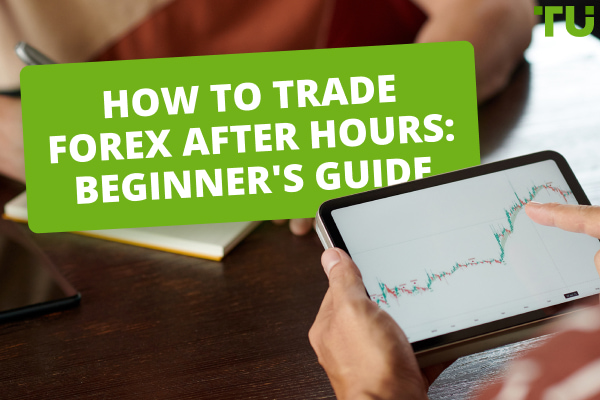Best Cent Account Brokers in 2024

Best Forex Cent Account 2024 eToro
TOP Forex Cent Accounts Brokers 2024:
-
eToro - Biggest copy trading community in the world (over 3,000 verified investors with copiers)
-
OANDA - Best for trading with advanced technical analysis tools (TradingView charts support)
-
IG Markets - Favorable Forex trading conditions (0 fees, avg. EUR/USD spread - 0.8)
-
Trading.com - Farouble Forex trading conditions (leverage up to 1:50, 70+ currency pairs)
-
FOREX.com - Diverse range of tradable assets (80+ currency pairs)
-
Interactive Brokers - Best broker for international investors (assets from 33 countries, 150+ markets)
For beginners, a cent account might be a great way to start trading forex. A cent account is measured in cents rather than dollars. As a whole, cent accounts are very similar to regular forex trading accounts, but they differ in some important ways.
One of the main differences between a cent account and others is the number of nominal funds associated with it. Since its introduction in 2006, it has proven to be an effective tool for helping amateur traders to increase their Forex trading skills without putting too much money at risk. As a result, if you start trading with 5 dollars, your account will have 500 cents in it.
There are many brokers that offer forex cent accounts. Below, we discuss some of the best ones that offer favorable trading conditions, various trading instruments, and other key features.
Top Brokers With Cent Accounts
eToro
The eToro broker was founded in 2007. The company promotes itself as a social trading platform working with traders from over 140 countries. The broker has several divisions operating under different jurisdictions and licensed by different regulators. For example, eToro (Europe) is licensed by the Cypriot regulator CySEC (109/10) and eToro (UK) is licensed by the British regulator FCA (583263). The broker also has a representative office in Australia and the USA. eToro Profile Details
OANDA
The name OANDA is an acronym for “Olsen & Associates” or “Olsen AND Associates”. It is registered in the United States and provides its clients with a wide range of financial services in most countries of the world. The company was founded in 1996 and is currently regulated in four jurisdictions. The main regulator of the broker is the UK Financial Conduct Authority (FCA). Oanda Canada is licensed by IIROC. The company has several significant awards to its credit, including a victory in the category "Best Forex Trading Technologies" from the UK Forex Awards, "Best Trading Platform" from FX Week, as well as "Best Customer Service" from the US Foreign Exchange Report.
IG Markets
IG Markets has been providing brokerage services for retail traders since 2014. It was established in 1974 in London to work with professional traders. It is a part of the IG Group with representative offices in 17 countries. IG Markets stocks are traded on the London Stock Exchange as a part of the FTSE 250 index. The broker is regulated by FCA (Financial Conduct Authority | the UK), CySec (Cyprus Securities and Exchange Commission), ASIC (Australian Securities and Investments Commission), BaFin (the Federal Financial Supervisory Authority | Germany), FINMA (Swiss Financial Market Supervisory Authority), and NFA (National Futures Association). The IG Group global representative office is supervised by BMA (the Bermuda Monetary Authority). The broker provides services of trading Forex and different CFDs through MetaTrader 4 and its in-house platforms for retail and professional traders.
Trading.com
Trading.com is a UK broker whose full name is Trading Point. Previously, it was called XMUK, but in 2019 it was rebranded and the company began to operate under its new title: Trading.com. The company offers to trade six asset classes such as currency pairs, metals, as well as CFDs on stocks, stock indices, commodity futures, and energy resources. More than 1,250 assets are available in total. The main office is located in London, the broker is regulated by the FCA (Financial Conduct Authority), and its registration number 705428.
FOREX.com
Forex.com is a company owned by GAIN Capital Holdings, Inc. (NYSE: GCAP) and has earned a reputation as a reliable broker in the trading industry for its transparent work and high quality of services. The company cooperates with clients in 140 countries. The broker is registered in the Cayman Islands and supervised by CIMA (Certified Institute for Management Accountants). The license number is 25033. The parent company of the Forex.com broker is registered in England and Wales under the number 1761813 at the UK Companies House. It is licensed by one of the most reputable regulators in the world, FCA (No. 113942).
Interactive Brokers
Interactive Brokers is among the best-known US investment companies, operating since 1977. The broker offers to trade currency pairs, but its basic instruments are stocks, CFD, indices, metals, ETF, futures, and other exchange market assets. You can also trade cryptocurrencies on Interactive Brokers. The company is regulated by the US Securities and Exchange Commission (SEC), the US Financial Industry Regulatory Authority (FINRA), the UK Financial Regulatory Authority (FCA), and other international financial regulation commissions. In 2020, the broker was awarded the "Best Online Broker” (Barron's) and "Best Broker for Economical Investments" (NerdWallet) titles and got five stars in the Online Stock Trading for Traders category (Canstar). Also, the broker is popular in other countries. Here you can read reviews of Interactive Brokers in Canada, Singapore, Australia, Hong Kong, Ireland.
Best Forex Micro Account Brokers Comparison
| eToro | OANDA | IG Markets | Trading.com | FOREX.com | Interactive Brokers | Fidelity | |
|---|---|---|---|---|---|---|---|
|
Trading platform |
Mobile Trading, WebTrader |
WebTrader, MetaTrader4, Mobile platforms, MetaTrader5 |
MetaTrader4, API, ProRealTime, IG Trading Platform |
MT5 |
FOREX.com, MT4, MT5 |
Trader Workstation, IBKR Mobile, APIs |
Active Trader Pro |
|
Min deposit |
$100 |
|
$1 |
$5 |
$1000 |
|
$1 |
|
Leverage |
From 1:2 |
From 1:1 |
From 1:1 |
From 1:1 |
From 1:1 |
From 1:1 |
1:1 |
|
Trust management |
|
|
|
|
|
|
|
|
Accrual of % on the balance |
|
|
|
|
|
|
|
|
Spread |
From 2 points |
From 0 points |
From 0.4 points |
From 0.6 points |
From 0.2 points |
From 0 points |
From 0 points |
|
Level of margin call / stop out |
|
|
|
100% / 50% |
|
|
1% / 1% |
|
Execution of orders |
Instant Execution |
Market Execution |
Market Execution |
Market Execution |
Market Execution, Instant Execution |
Market Execution |
Market Execution |
|
No deposit bonus |
|
|
|
|
|
|
|
Warning:
There is a high level of risk involved when trading leveraged products such as Forex/CFDs. Between 65% and 82% of retail investor accounts lose money when trading CFDs. You should consider whether you understand how CFDs work and whether you can afford to take the high risk of losing your money.
What Is a Cent Account Forex Broker?
With a cent account feature, forex brokers enable live trading without large fund requirements, as all calculations and measures are calculated in cents. The only difference between a cent account and a standard account is the nominal amount. Let's say a trader deposits $10. This account will display a balance of 1,000 cents, which represents trading funds.
👍 Cent Account Pros
•Possibility to trade without big risk
•Ultra low minimum deposit
•Test out the quality of the services that your broker provides
•Zero trading commissions
•Smaller lot size
👎 Cent Account Cons
Lot Size in Cent (Micro) Accounts
While researching forex brokers, you've probably seen that many offer cent accounts, and you've probably wondered what they are. In simple terms, a cent account displays your account balance in cents instead of dollars. Cents are also used in all transactions and trades.
By using a simple example, let's examine cent accounts in more detail. Suppose you're interested in opening a cent account with a certain broker. First, you'll notice that the balance of your trading account will be shown in cents when you deposit funds. You will have 2,000 cents in your trading account if you deposit $20.
Now, assume you would like to begin a trade in USD/CAD of 0.1 lots. With the cent account, you'll need $10,000 cents or $100 to enter the trade if you do not use leverage.
The pip in this case will equal $1, or 1 cent in the case of your cent account, since you are trading 0.1 standard lots. If the price increases by 20 pips, the profit will be 20 cents. Similarly, 20 pips of price decline lead to a loss of 20 cents.
Using the same example with a standard account, your profit or loss would be $20. You can therefore multiply your profits and losses by 100 with a cent account. This has several advantages.
One of the benefits of cent accounts is that they allow you to trade forex with real money while limiting your risks at the same time. Using real funds, you can test out the trading platform, trading strategies, and risk management. As a result, cent accounts are a great tool to learn as much as possible about forex trading for beginners.
One drawback of cent accounts is their small profits. There is also a psychological disadvantage to trading with cents instead of dollars.
Are Cent Accounts Good for Beginners?
Beginners are often recommended to open a forex cent account due to its beginner-friendliness and low-risk start. All transactions in a cent account are executed in cents, rather than dollars.
Developing forex trading strategies is ideal with cent accounts. You can develop your skills and gain experience while simultaneously experimenting with different trading strategies because of the low-risk advantage.
It is important to keep in mind, however, that a smaller capital will result in smaller gains. So, it isn't the best choice to open a cent account if you want to get huge profits. In order to improve their skills and experience, it is better suited for traders who have access to real trading accounts.
Pros and Cons of Cent Accounts
Cent accounts are a popular choice for forex traders who want to trade with a smaller investment. These accounts allow traders to open positions in smaller lots, which is ideal for novice traders or those with limited capital. In this article, we will discuss five pros and three cons of cent accounts to help you decide if this type of account is suitable for your trading needs.
👍 Pros of Cent Accounts
• Low Minimum Deposit: One of the biggest advantages of a cent account is that it requires a low minimum deposit, usually between $1 to $10. This means that traders with limited capital can participate in the forex market and gain trading experience without risking a large amount of money
• Smaller Lot Sizes: Cent accounts allow traders to open positions in smaller lot sizes, typically 1/10th of a standard lot. This means that traders can start with a smaller position size, reducing the risk of losses
• Reduced Risk: With smaller lot sizes, cent accounts offer traders the opportunity to practise trading without risking a lot of money. This can be particularly beneficial for novice traders who are still learning the ropes
👎 Cons of Cent Accounts
• Higher Spreads: Cent accounts often come with higher spreads compared to standard accounts. This means that traders may have to pay more in fees, which can eat into their profits
• Limited Leverage: Cent accounts often have limited leverage, which means that traders may not be able to take advantage of larger market movements
Who Might Be Interested in Cent Accounts
Сent accounts provide an effective and low-cost way to thoroughly test strategies before committing real trading capital. The flexibility they provide allows for comprehensive testing across multiple dimensions of trading.
Low risk environment
While demo accounts allow traders to practice in a risk-free environment, they might not replicate the emotional pressures of trading with real money. Cent accounts, on the other hand, allow you to test strategies with real market conditions but with minimal risk. Losing a few cents per trade is inconsequential compared to losing dollars in a standard account and makes mistakes affordable. This enables more experimentation.
Flexibility in position sizing
You can open micro lots with a cent account. This allows you to properly size positions for a strategy you may want to use in a bigger account later. Proper position sizing is key for effective strategy.
Test multiple strategies
The low-risk aspect enables testing several strategies or variations without taking on excessive risk. You can gauge which strategies work best and are worth pursuing further. For those interested in algorithmic trading, cent accounts are perfect for testing and tweaking trading robots and Expert Advisors (EAs) before deploying them on larger accounts.
Refine entry and exit points
Cent accounts allow you to precisely dial in entry and exit levels and see how small tweaks impact strategy performance. This can help optimize a strategy.
Evaluate money management
You can experiment with stop losses, trailing stops, and target levels to evaluate money management techniques for a strategy. This is an important aspect of testing.
Assess emotions and discipline
Trading with real money, even if it's just cents, introduces the emotional aspects of trading. Manually executing trades in a cent account can assess if you can stick to a strategy with real money on the line. Learning to manage emotions like fear and greed in a low-risk environment can be invaluable for long-term success.
How to Choose a Cent Account Forex Broker
We provide an overview of how we rank and rate the best forex cent accounts available today.
Regulation and safety: The regulatory status of forex brokers is the primary factor we consider when choosing a broker. Ensure that the provider you choose is licensed by a reputable financial institution.
Supported forex pairs: In terms of choosing a suitable currency pair, the best forex cent accounts provide a wide selection.
Fees: There are often higher fees associated with traditional cent accounts. With spreads, this is especially true.
Tools and analysis: Trading tools are an integral part of the best forex cent accounts. Among the things to include are custom order types and charts, economic indicators, and financial news.
Minumum deposit: A minimum deposit of $1 is required for some cent accounts. For beginners on a tight budget, this is a good choice.
Mobile app: Mobile apps are available for iOS and Android from most cent account brokers. When a native app is not available, mobile trading is usually available via MT4 or MT5.
Payment methods: Pay attention to how the broker charges for payment methods. There are several types of forex cent account brokers available, including e-wallets, bank wires, and Visa/MasterCard.
Customer service: Traders looking for cent accounts should look for trading platforms with 24-hour customer service. By doing this, traders will have access to help regardless of their time zone.
Expert opinion
A forex cent account combines the features of a real and a demo account. From a real account, it takes quotes, spreads, and other trading parameters. However, any profit or loss on it is 100 times less than on a regular account. This allows beginners to test their trading strategy without risking a large sum of money. A deposit of $10 is sufficient for a cent account, but it is desirable to have at least $20-30 so as not to enable leverage that is too high and trade micro lots.
I would recommend that beginners trade on a cent account for as long as possible and with a small amount of money to work out trading strategies, learn to follow a trading plan and develop self-discipline. This will allow you to gain experience in real market conditions without putting your capital at risk. Remember, even small losses can be discouraging, so it's important to start small and gradually increase your trading size as you gain confidence and experience.
FAQs
Can I trade forex with cents?
Yes, it is possible to trade forex with cents using cent accounts provided by many forex brokers.
Which cent accounts broker has the lowest commission?
Some cent accounts brokers, such as FXOpen, offer zero commission trading, which can be beneficial for traders looking to minimise their trading costs.
What is the best leverage for a cent account?
The best leverage for a cent account depends on the trader's experience and risk management. It is advisable for beginners to start with moderate leverage (1:100 or lower)
Can I trade with $1?
Some forex brokers, such as FBS, offer cent accounts with a minimum deposit of $1, making it possible to start trading with a very small amount of money.
What is the highest amount I can trade with if I use a cent account?
It depends, but the most common approach is to buy and sell forex using cent accounts. Therefore, it will be 99 cents or less.
Is a cent account low risk?
Yes. In most cases, cent accounts are low-risk since you only lose what you stake.
Is a cent account the same as a demo account?
No, they are not the same. Cent accounts are live accounts, whereas demo accounts are not. With a cent account, you can lose money and make money, while demo accounts do not carry any risk.
Do all rokers offer cent account features?
No. There are only a few brokers that offer cent accounts to traders. Among the top brokers that offer cent accounts are RoboForex, XM, Exness, and Forex4You.
Methodology for compiling our ratings of Forex brokers
Traders Union applies a rigorous methodology to evaluate brokers using over 100 quantitative and qualitative criteria. Multiple parameters are given individual scores that feed into an overall rating.
Key aspects of the assessment include:
Regulation and safety. Brokers are evaluated based on the level/reputation of licenses and regulations they operate under.
User reviews. Client reviews and feedback are analyzed to determine customer satisfaction levels. Reviews are fact-checked and verified.
Trading instruments. Brokers are evaluated on the range of assets offered, as well as the breadth and depth of available markets.
Fees and commissions. All trading fees and commissions are analyzed comprehensively to determine overall costs for clients.
Trading platforms. Brokers are assessed based on the variety, quality, and features of platforms offered to clients.
Other factors like brand popularity, client support, and educational resources are also evaluated.
Find out more about the unique broker assessment methodology developed by Traders Union specialists.
Team that worked on the article
Oleg Tkachenko is an economic analyst and risk manager having more than 14 years of experience in working with systemically important banks, investment companies, and analytical platforms. He has been a Traders Union analyst since 2018. His primary specialties are analysis and prediction of price tendencies in the Forex, stock, commodity, and cryptocurrency markets, as well as the development of trading strategies and individual risk management systems. He also analyzes nonstandard investing markets and studies trading psychology.
Dr. BJ Johnson is a PhD in English Language and an editor with over 15 years of experience. He earned his degree in English Language in the U.S and the UK. In 2020, Dr. Johnson joined the Traders Union team. Since then, he has created over 100 exclusive articles and edited over 300 articles of other authors.
The topics he covers include trading signals, cryptocurrencies, Forex brokers, stock brokers, expert advisors, binary options. He has also worked on the ratings of brokers and many other materials.
Dr. BJ Johnson’s motto: It always seems impossible until it’s done. You can do it.
Mirjan Hipolito is a journalist and news editor at Traders Union. She is an expert crypto writer with five years of experience in the financial markets. Her specialties are daily market news, price predictions, and Initial Coin Offerings (ICO). Mirjan is a cryptocurrency and stock trader. This deep understanding of the finance sector allows her to create informative and engaging content that helps readers easily navigate the complexities of the crypto world.
















